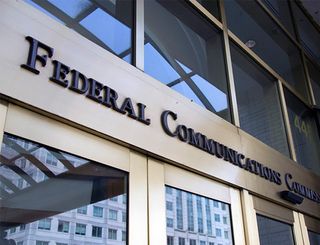FCC Approves IP Clip Closed-Captioning Item

The FCC has voted unanimously—with Republicans concurring rather than voting either yes or no—to apply online closed-captioning mandates to clips of video that originally aired on TV.
The FCC in 2012, in implementing the Communications and Video Accessibility Act (CVAA), concluded that in applying the mandate to the owners and distributors of IP-delivered video, it would initially apply it only to full-length programming and not to clips. But it also interpreted the statute to mean that Congress left open the question of whether it would eventually also apply to those clips.
After groups petitioned the commission to reconsider not applying them to clips, the FCC collected new info and has decided to extend the mandate to clips under a rolling deadline.
The mandate applies only to clips from programs that were originally captioned on TV, and only to sites owned or controlled by that TV distributor. It also does not apply to library programming that predates the compliance deadlines.
As of Jan. 1, 2016, all "straight-lift" clips will have to be captioned; montages of clips will have to be captioned as of Jan. 1, 2017. Live and near-live clips will have to be captioned as of July 1, 2017, but with a grace period for IP captioning live programming of 12 hours after airing on TV, and, in a change sought by FCC commissioner Ajit Pai, near-live programming will get an 8-hour grace period—the item had previously provided no grace period for near-live.
The FCC also voted on a further notice that asks four questions: Should the IP clip captioning mandate apply to third parties, by which it means anyone not covered by the deadlines imposed by the new mandate; whether the grace periods for live and near-live programming should eventually be phased out, with the assumption that technology will ultimately make them unnecessary; whether the mandate should apply to mashups, and how it should apply to advance clips, which are ones that are posted after the deadline, but before they air on TV (promos for upcoming shows, for example).
FCC chairman Tom Wheeler said for too long, those with special needs have been sitting in the back of the innovation train.
Broadcasting & Cable Newsletter
The smarter way to stay on top of broadcasting and cable industry. Sign up below
This item, he said, was a way to bring them to the front, but was only the beginning of the FCC's efforts to make that so.
"Wait[ing] until we get around to it is not enough," he said.
He also pointed out that TV viewing online is "poised" to surpass viewing via an antenna. News, sports and entertainment are already on the web, now they are going to be available to "Americans who hear with their eyes," he said.
Commissioner Mignon Clyburn, borrowing from Victor Hugo, said that "few things [are] more powerful than an idea whose time has come." She said she recognized the industry's concern about the difficulty of captioning montage clips, but suggested that should not be an impediment to full implementation and would not and should deter the march toward accessibility.
She said she shared commissioner Michael O'Rielly's concern about the impact of the requirements on smaller broadcasters.
Commissioner Jessica Rosenworcel said: "I appreciate compliance with new rules will take work, but we must be more than just the steward of the status quo."
For his part, O'Rielly said he was pleased the item had been modified to include flexibility for smaller broadcasters who may not have access to the requisite technology.
But both O'Rielly and Pai had issues that prompted them to concur, which is approval but short of full-throated support.
Those included the fact that much clip captioning was already being done voluntarily and that the FCC did not conduct a cost-benefit analysis.
O'Rielly said he was not convinced the FCC has the authority to mandate clip captioning, but would defer to Democratic legislators who had drafted the CVAA and said they did mean for it to include clip captioning.
Pai gave a shout-out to CBS, ABC and Fox News for having already captioned the vast majority of news clips.
Contributing editor John Eggerton has been an editor and/or writer on media regulation, legislation and policy for over four decades, including covering the FCC, FTC, Congress, the major media trade associations, and the federal courts. In addition to Multichannel News and Broadcasting + Cable, his work has appeared in Radio World, TV Technology, TV Fax, This Week in Consumer Electronics, Variety and the Encyclopedia Britannica.

